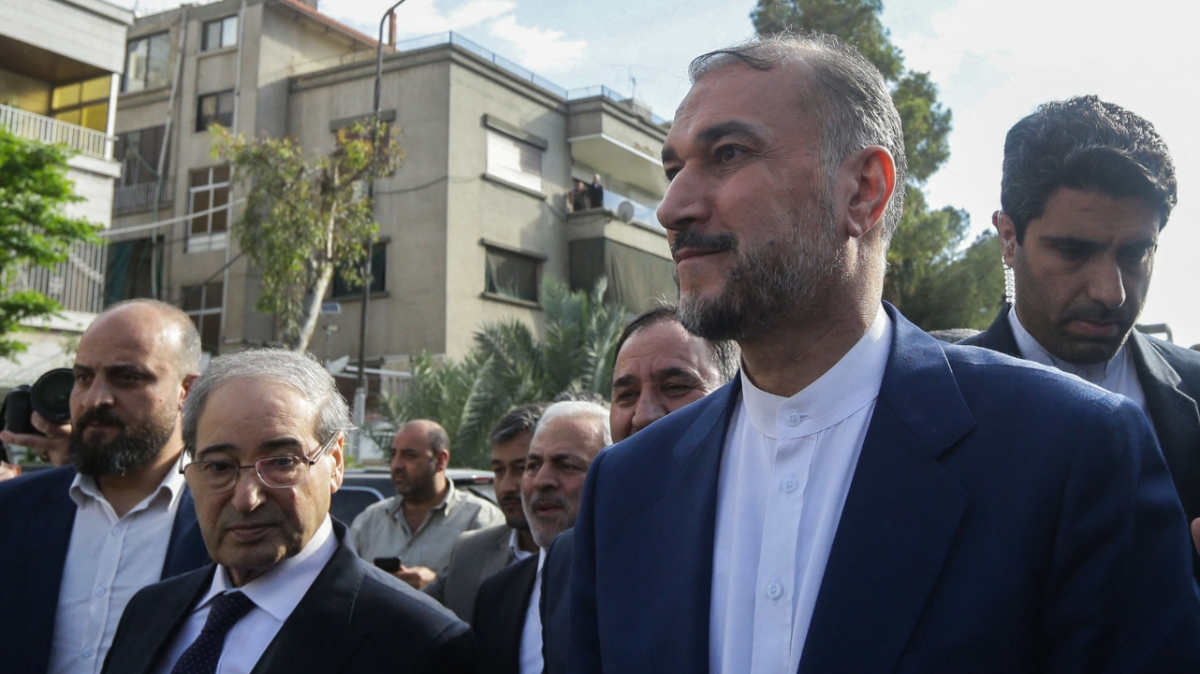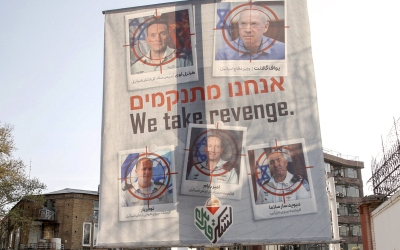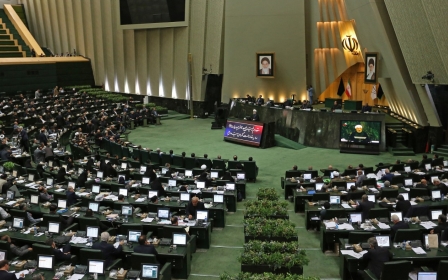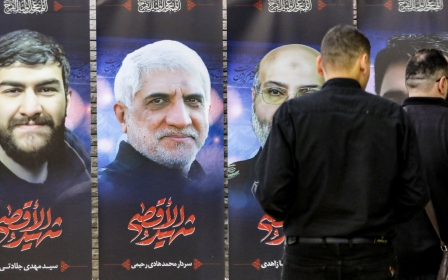Iran's top diplomat due in US as lawmakers push to block officials from UN

Iran’s top diplomat is set to travel to the US to participate in a UN Security Council session on Palestine next week, a trip that is likely to highlight the simmering tensions between Washington and Tehran.
Iranian Foreign Minister Hossein Amir-Abdollahian will attend the UN Security Council meeting on Palestine scheduled for 18 April.
His trip comes with tensions at a boilerplate, following a strike on 1 April on Iran’s consulate in Damascus, Syria, which Tehran said Israel conducted with US weapons and approval.
On Tuesday, Amir-Abdollahian repeated the accusation that the US approved the deadly strike that killed seven Islamic Revolutionary Guard Corps (IRGC) members, including two generals.
"America is responsible for this incident and must be held accountable," Abdollahian told reporters in Damascus.
New MEE newsletter: Jerusalem Dispatch
Sign up to get the latest insights and analysis on Israel-Palestine, alongside Turkey Unpacked and other MEE newsletters
"The fact that the US and two European countries opposed a (UN Security Council) resolution condemning the attack on the Iranian embassy is a sign that the US gave the green light to the Zionist regime (Israel)" to carry out the attack, he claimed.
Asked about Abdollahian's remarks, deputy Pentagon press secretary Sabrina Singh denied Washington was connected to the attack.
"I can very forcefully push back on that and say... the US military had no involvement in that strike that took place in Damascus," she told journalists.
Congress eyes Iran at UN
Iran’s top diplomat appeared at the UN Security Council in January. That same month, the US and Iran reportedly held secret, indirect talks in Oman to de-escalate tensions, following a deadly drone attack on US troops in Jordan that Washington blamed on an Iran-backed militia.
As the war in Gaza drags on past six months, it has seeped out beyond the besieged Mediterranean enclave's borders, morphing into a shadowy proxy contest between the US and Iran over who calls the shots in the Middle East.
Since 7 October, Iranian proxies have launched more than 170 attacks on US forces, mainly in Iraq and Syria, according to the Institute For the Study of War.
Meanwhile, Iran-aligned Houthis in Yemen have attacked commercial ships, in what they say is in solidarity with besieged Palestinians. The US and UK have responded by launching dozens of air strikes.
Tensions have cooled since January after an Iraqi militia killed three US soldiers in Jordan with a drone, and the Biden administration responded with dozens of strikes against Iranian assets in Iraq and Syria.
But US lawmakers are looking to keep pressure on Tehran, including at the UN. In March, a group of 27 Republican and Democratic members of Congress asked Biden to block Iranian government officials from entering the US for UN meetings.
Republican hawks have sought to prevent Iran from entering the UN for years, but those calls have grown louder amid the war in Gaza.
The US is obliged under its 1947 agreement to host the UN headquarters to allow foreign diplomats - even foes - access to the country for meetings.
The last time Iran's top diplomat was blocked from attending the UN was in 2020 under the Trump administration, when former Iranian Foreign Minister Mohammad Javad Zarif was denied an entry visa to the US to attend a Security Council meeting under national security grounds.
Middle East Eye delivers independent and unrivalled coverage and analysis of the Middle East, North Africa and beyond. To learn more about republishing this content and the associated fees, please fill out this form. More about MEE can be found here.





